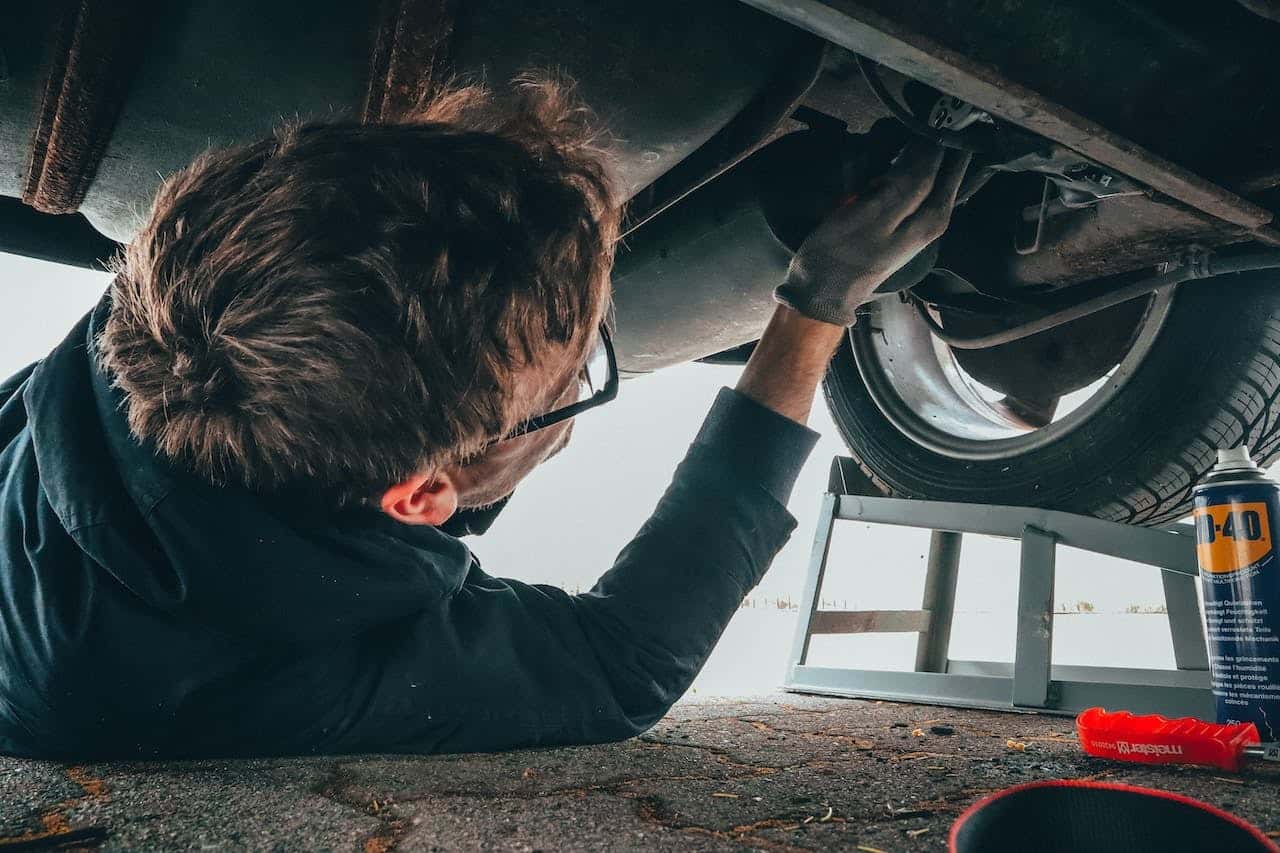Contents
Introduction
Living in a rural area has its perks – the peaceful landscapes, the fresh air, and the sense of community. But things can get more challenging when it comes to maintaining your car. In rural areas, dusty roads, wildlife encounters, and scarce service stations make car maintenance a crucial concern.
In this blog post, we’ll share five essential tips to keep your vehicle running smoothly in these picturesque yet demanding surroundings. So buckle up, and let’s hit the road!
Importance of Maintaining a Car in Rural Areas
Living in a rural area comes with its own set of challenges, especially when it comes to maintaining a car. In these wide open spaces, your vehicle is a means of transportation and an essential lifeline connecting you to the outside world. That’s why it’s crucial to prioritize regular maintenance and care for your car.
Lack of Resources
One of the most important reasons for maintaining your car in rural areas is the lack of nearby resources. Unlike urban regions with abundant repair shops, finding help can be difficult in remote locations. By taking proactive measures to keep your vehicle in good condition, you can minimize breakdowns and avoid being stranded miles away from assistance.
Dusty Gravel Roads
Rural roads often present harsher driving conditions compared to city streets. Dusty gravel roads, potholes, and uneven terrain can take a toll on your vehicle. Regularly checking fluid levels and changing them as needed will ensure all components are properly lubricated and functioning optimally.
Proper Tire Maintenance
Proper tire maintenance is another crucial aspect of caring for your car in rural areas. Keeping tires properly inflated improves fuel efficiency and enhances safety on rough terrains. Additionally, rotating tires regularly helps distribute wear evenly across all four wheels, extending their lifespan.
Wildlife Encounter
Wildlife encounters occur daily in rural areas, posing potential risks to drivers and vehicles alike. Protecting your car from wildlife damage involves taking precautions such as installing deer whistles or grille guards. These simple steps can reduce the likelihood of collisions with animals or damage caused by curious critters exploring parked vehicles.
Regular Cleaning
Regular cleaning is vital for your car’s health, especially if you often live near dusty fields or encounter muddy roads. It prevents corrosion and extends the life of components like paintwork and undercarriage parts by removing dirt, grime, and environmental contaminants.
Finally (but not conclusively!), having emergency supplies is crucial for rural drivers. In case of unexpected
Tip 1: Regularly Check Fluid Levels and Change Them
Regularly checking the fluid levels in your car is crucial for its overall performance, especially when living in rural areas. The dusty roads and long distances can strain your vehicle, making it even more important to monitor those fluids.
Engine Oil:
Start by checking engine oil regularly. This is the lifeblood of your car’s engine and needs to be at the proper level for optimal lubrication. Low oil levels can lead to increased friction and overheating, which can cause severe damage.
Coolant:
Next, remember the coolant. Rural areas often have extreme temperatures, so keeping your engine cool is essential. Ensure the coolant reservoir is filled up to the recommended level, and check for any leaks or signs of wear in the cooling system.
Brake Fluide
Another vital fluid to monitor is brake fluid. It plays a crucial role in ensuring that your brakes work effectively when you need them most. Low brake fluid levels can compromise braking performance, putting you and others at risk.
Other Fluides
Take into account other fluids like power steering fluid and transmission fluid. These fluids contribute to smooth operation while driving and should be checked regularly.
Regularly checking these various fluids and changing them as needed will help ensure your car remains reliable wherever you drive through those rural landscapes!
Tip 2: Keep Tires Properly Inflated and Rotated
One crucial tip for maintaining your car in rural areas is to keep your tires properly inflated and rotated. Why is this so crucial? Correct tire pressure improves fuel efficiency and ensures better traction on uneven terrain.
Tire Pressure
Regularly checking your tire pressure is a simple task that can prevent potential issues. Invest in a good quality tire gauge and take a few minutes every month to check all four tires. If they are underinflated, add air until they reach the recommended pressure level specified by the manufacturer.
Regularly Rotating Tire
Rotating your tires regularly helps promote even wear and extends their lifespan. This becomes even more important in rural areas where roads can be rougher or unpaved. By rotating them every 5,000-8,000 miles or as your vehicle’s manual recommends, you’ll ensure that each tire wears evenly and avoids premature damage.
Wheels Alignment
Additionally, remember proper wheel alignment. Rough terrains can knock wheels out of alignment over time. Regular alignments will help maintain stability and reduce unnecessary strain on your tires.
By following these tips for keeping your tires properly inflated and rotated in rural areas, you’ll have peace of mind knowing that safety and performance are prioritized for your travels off the beaten path!
Tip 3: Protect Your Car from Wildlife Damage
In rural areas, protecting your car from wildlife damage is a unique challenge. Encounters with animals, from deer on the road to raccoons exploring your vehicle, can cause various issues, making car maintenance crucial.
Animal Deterrents
To minimize the risk of damage, you can take a few precautions. Consider installing animal deterrents such as ultrasonic devices or motion sensor lights around your parking area. These tools emit sounds or light that can scare away curious creatures and prevent them from getting too close to your vehicle.
Animal Activity Peak Time
Always be cautious when driving at dawn or dusk – these are peak times for animal activity. Look for reflective eyes along the roadside and reduce your speed if necessary. Additionally, remember that honking your horn may startle animals and cause them to flee.
Regulary Inspecting Car
Furthermore, inspecting your car regularly for any signs of wildlife-induced damage is essential. Look for scratches on the paintwork, chewed wires under the hood, or dents that could indicate collisions with larger animals. Taking prompt action and repairing any damages immediately will help prevent further issues.
Food Scraps
Keep in mind that prevention is key! Avoid leaving food scraps or trash insie your car, as they attract critters searching for an easy meal. Secure garbage cans tightly and store pet food indoors to discourage unwanted visitors from approaching your vehicle.
By taking these proactive measures to protect against wildlife damage, you’ll ensure that you and your car stay safe while navigating rural roads.
Tip 4: Clean Your Car Regularly
One of the most important aspects of maintaining your car in rural areas is to keep it clean. It may seem simple, but regular cleaning can significantly impact your car’s overall condition and longevity.
Regular Washing
In rural areas, dirt and grime can harm your car’s paint. Regular washing helps prevent damage by removing these contaminants, particularly in regions with exposure to mud or dust from unpaved roads.
Interior Cleaning
Cleaning the interior of your car is equally important. Rural areas often mean more exposure to nature – think about all those muddy boots or pet hair that might find their way into your vehicle! Regular vacuuming and wiping down surfaces keep things looking neat and prevent any potential damage caused by debris.
Undercarriage Cleaning
Furthermore, remember undercarriage cleaning! In rural areas with rough terrain or gravel roads, dirt, and rocks can get stuck underneath your car. Over time, this buildup can lead to corrosion or even affect the performance of crucial components such as brake lines or suspension systems.
Tip 5: Have Emergency Supplies On Hand
Living in a rural area means being prepared for unexpected situations. When maintaining your car, having emergency supplies on hand is crucial. You never know when you might encounter a breakdown or get stranded on a lonely road without help.
First Aid Kit
First and foremost, make sure to carry a fully stocked first aid kit. Accidents happen, and it’s necessary to be able to provide immediate medical assistance if needed.
Tools
Additionally, always keep some essential tools like a wrench, screwdriver set, and jumper cables in your car. These can come in handy for minor repairs or jump-starting your battery.
Flashlight
Another must-have item is a flashlight with extra batteries. Imagine being stuck on the side of the road at night without any light source – not ideal! A portable phone charger is essential to stay connected and call for help.
Snacks & Water
Consider keeping non-perishable snacks and water bottles in your car. These can be lifesavers if you find yourself stranded for an extended period before rescue arrives.
Remember, emergencies don’t wait for convenient times or locations – they happen when least expected! By having these emergency supplies readily available in your vehicle, you’ll be better equipped to handle whatever challenges come your way while driving through rural areas.
Conclusion
Maintaining a car in rural areas is essential for ensuring its longevity and performance. Following these five tips, you can keep your vehicle in top shape and avoid unnecessary breakdowns or repairs.
Regularly checking fluid levels and changing them when needed will help prevent engine damage and ensure smooth operation. Keeping tires properly inflated and rotated will improve fuel efficiency, handling, and overall tire life. Protecting your car from wildlife damage by installing protective measures such as deer guards or animal repellents is crucial in rural settings.
Cleaning your car regularly enhances its appearance and helps prevent rusting and corrosion caused by dirt, mud, or road salt. Emergency supplies, like spare tires, jumper cables, flashlights, first aid kits, and extra water, can be lifesaving during unexpected situations.
Remember that maintenance should be noticed even if you live in a rural area. Taking care of your car proactively will save you time, money, and stress. So, make it a habit to follow these tips consistently for a well-maintained vehicle that serves you reliably on those less-traveled roads.
Implementing these practices into your routine maintenance schedule while living in remote locations with limited access to repair shops or services will help extend the lifespan of your vehicle while enhancing safety on the road – giving you peace of mind during every journey. Happy driving!



